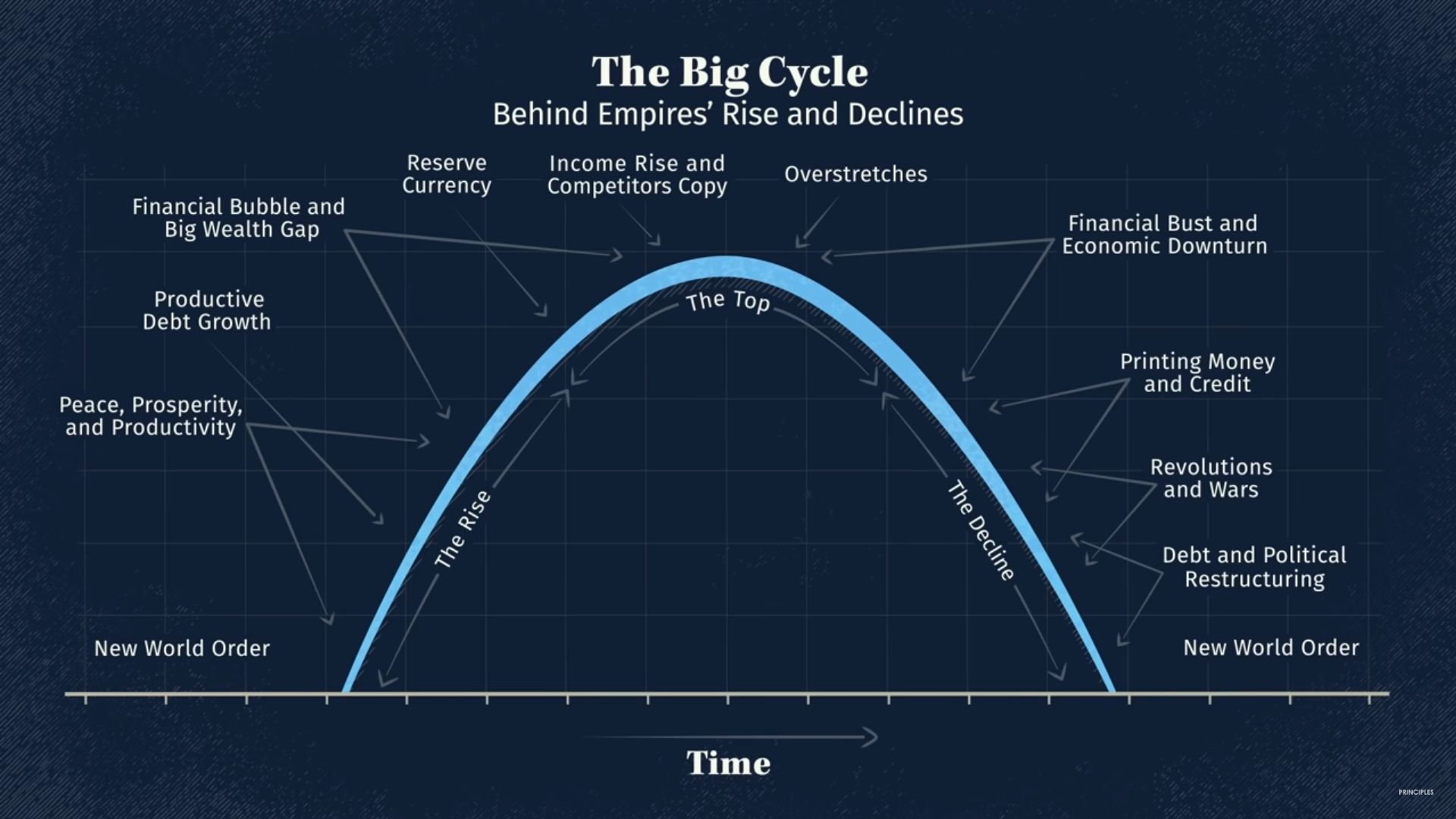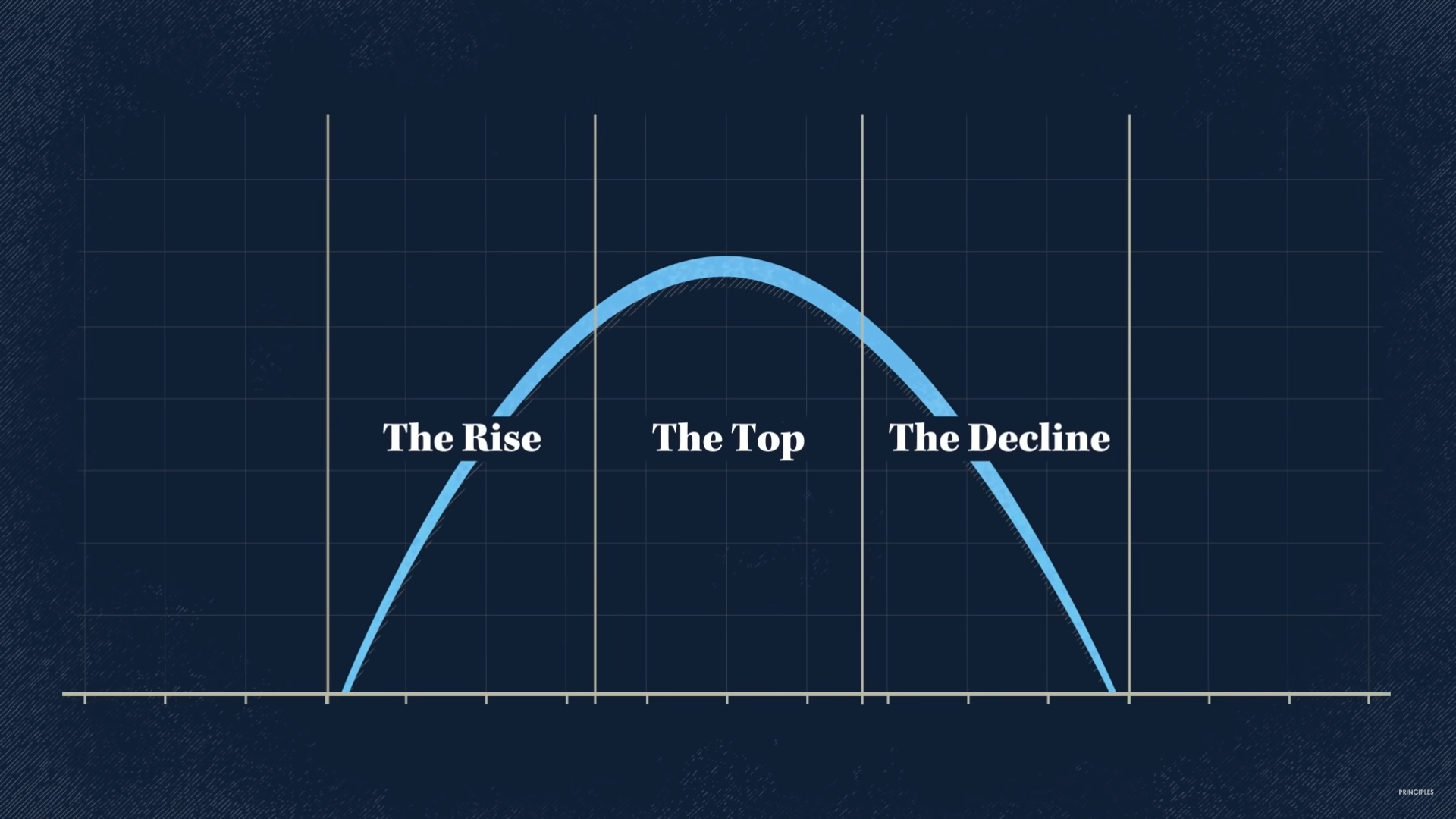Principles for Dealing with the Changing World Order by Ray Dalio
Human life longevity relates to health. Similarly, empires’ longevity relates to certain principles:
- Leadership strength
- Education quality
- Character and work ethic
- Rule of law
- Corruption levels
- Efficiency in resource use
- Global-mindedness
Empires experience cycles. Each cycle has phases.

There are 3 phases:

The Rise
Empires rise due to visionary leaders. They centralize power. They set up functional systems. These systems choose good successors.
Result? Peace. Prosperity. Productivity. Why? Strong leadership. Happy citizens. They don’t resist.
Benefits include:
- Enhanced social order
- Quality education
- Upheld rule of law
- Low corruption
- Boost in innovation
These positives make citizens productive. Their global competitiveness grows. Economic output increases. World trade share rises. A reserve currency allows more borrowing. This grants more leverage.
The Top
At the peak, prosperity saturates the dominant nation. Citizens there earn more, making them pricier and less competitive.
As emerging nations offer cheaper labor, they gain an edge. They also adopt the leading nation’s technologies, leveling the playing field.
The dominant nation faces external challenges.
Internally, complacency can grow. There’s less urgency for innovation. Wealth gaps might widen. Social unrest may brew.
The Decline
In this phase, once-dominant empires face multiple challenges:
-
Economic Strain: Debt levels rise. Economic growth slows. The once-reserve currency may lose its dominant position.
-
Political and Social Tensions: The internal fabric weakens. Political infighting intensifies. Social cohesion decreases. People question the system.
-
External Pressures: Rival nations grow stronger. They challenge the dominant empire’s position, both economically and militarily.
-
Innovation Stagnation: The pace of innovation slows down. Other nations lead in technological advancements.
-
Resource Misallocation: Resources, especially capital and talent, might not be utilized effectively. There’s more focus on short-term gains than long-term stability.
The combination of these factors accelerates the decline. The cycle then resets as new powers begin their rise, learning from the previous empire’s mistakes. The ebb and flow of empires continue, driven by these patterns of rise, peak, and decline.